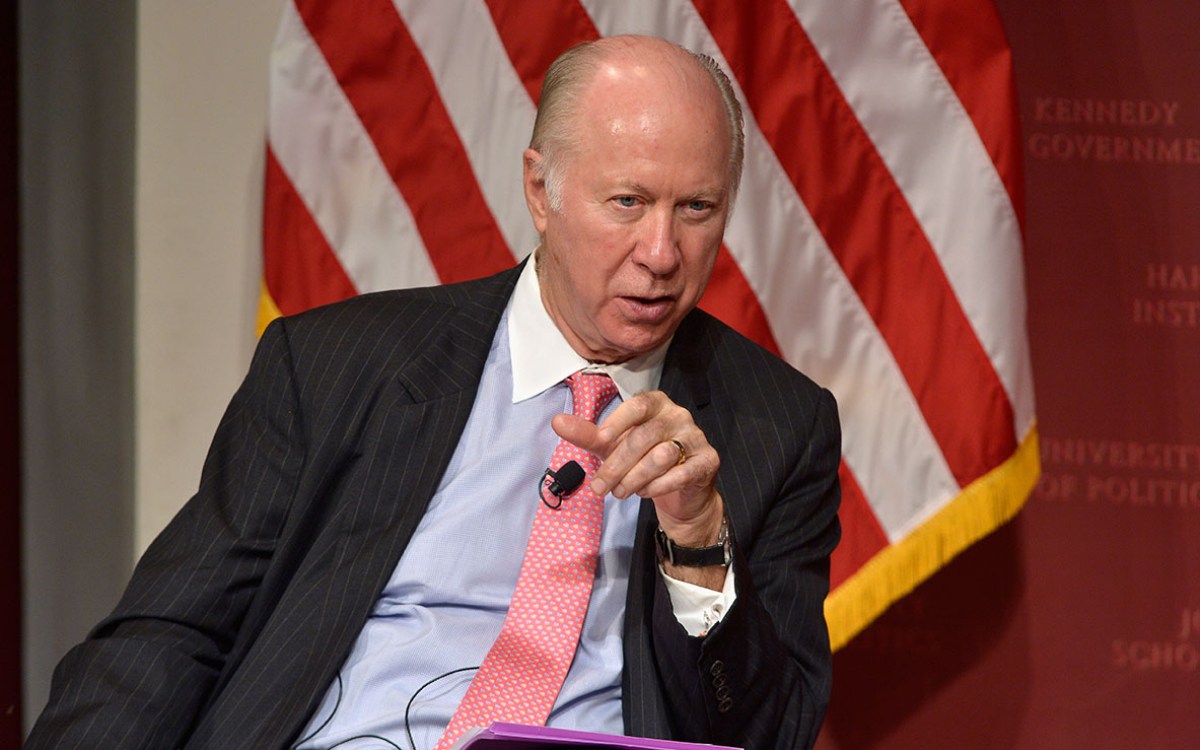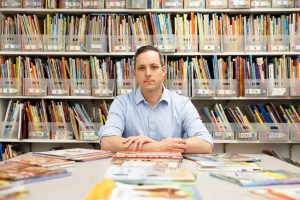HBS helps Jerusalem develop ‘competitive advantages’
The mayor of Jerusalem visited Harvard Thursday (March 26) and outlined a plan for his city’s economic future, one created with the help of Harvard Business School (HBS).
In a meeting in Ludcke House on the HBS campus, Nir Barkat addressed a small crowd of reporters. Joining him were Michael Porter and Yagil Weinberg, founders of the Center for Middle East Competitive Strategy, an HBS initiative that works with private businesses and governments to help nations, regions, and cities develop economic competitiveness.
For the past five years Barkat has been collaborating with the center in an effort to help revitalize Jerusalem. (The center is part of HBS’s Institute for Strategy and Competitiveness, which Porter directs.)
“For Jerusalem to become successful we have to learn how to develop Jerusalem’s competitive advantages,” said Barkat. Part of that learning curve, he said, involves the “business cluster” concept popularized by Porter, Bishop William Lawrence University Professor.
A business cluster is a geographic concentration of interconnected companies, suppliers, and associated institutions thought to stimulate economic growth.
Culture tourism, said Barkat, was one industry in Jerusalem that could use the cluster concept to maximize its potential.
Putting culture organizations, tourist guides, and the hotel industry together, he said, makes “one plus one equal three.”
Outsourcing professional (medical and financial) services is important too, said the mayor, as well as developing the health and life sciences. Both could improve the city’s economic status, helped by a young, educated population and strong research hospitals.
In the science arena, Jerusalem would focus on particular niches, said Porter, instead of trying to attract large investments in areas like biotech manufacturing.
“Jerusalem will go after niches,” he said — areas like cardiology, cancer, stem cell research — “where Jerusalem has this very unique talent asset.”
A two-state solution that includes a Palestinian capital in Jerusalem would not help his economic plan, said Barkat. “I’ve no doubt in my mind that this model will work much better as a united city,” he said.
Barkat, elected last November, is considered by some a uniting force. He can help bridge the gap between the secular and orthodox populations of the city, they say, as well as those sharply divided by ethnic tension.
A veteran of the First Lebanon War and a successful high-tech entrepreneur, Barkat served as the opposition leader of the city council for five years prior to his election. The economic overhaul of Jerusalem — both Israel’s largest and poorest city — is a cornerstone of his agenda.
During the event, Barkat presented Porter with a key to the city of Jerusalem. It was a gesture of thanks for the professor’s long-standing collaboration and support.
Before the briefing, Barkat met with business leaders and Harvard faculty members to further brainstorm Jerusalem’s economic future.




